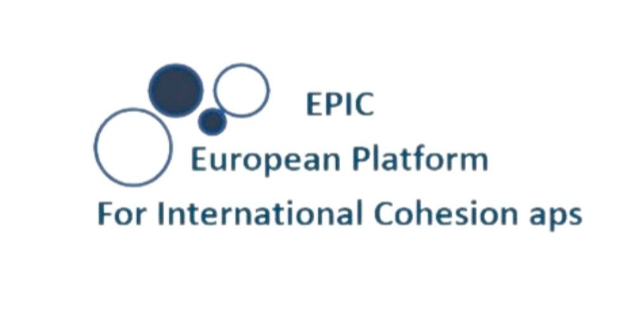Description
People are facing different challenges and changes, both globally and locally. To cope with this chaotic and fast-paced reality, we need to believe in ourselves and in our abilities, even the most hidden ones, without being afraid of making mistakes.
 Who is an entrepreneur? Who is an entrepreneur?DefinitionClick to read
In about 1800, a French economist Jean-Baptiste Say combined the two words to popularize the term, entrepreneur and he said: “The entrepreneur shifts economic resources out of an area of lower and into an area of higher productivity and greater yield.” In Say’s mind, the entrepreneur was something of a resource hacker, able to use scant resources to create innovative products. According to Richard Callington, an entrepreneur is someone, who practices business judgement in the face of uncertainty of the future. Peter Drucker describes the entrepreneurs as an innovator, who is willing to take a measured risk to start a new venture chasing greater than usual profit. In these definitions, we can clearly recognize some of the characteristics of the entrepreneur such as sense of risk, innovation, creativity, curiosity... Let’s take a closer look! Ten features of successful entrepreneursClick to read
We can say that entrepreneurship is an activity with an inherent and very high coefficient of risk. The assumption of risk is among the few elements that distinct entrepreneurs from managers. Such risk is related to the overall uncertainty upon the success and profitability of the entrepreneurial initiative. The entrepreneurial challenge consists in facing such uncertainty with courage, method and critical thinking so to mitigate the risk and meet the expected outcomes. The entrepreneurial attitude views difficulties as fantastic business opportunities just waiting to be taken advantage of. Entrepreneurs receive valuable lessons from failure that they can use to reconfigure their innovation strategy and reset their competitive edge. That’s why we need to focus on sense of initiative and on entrepreneurial mindset. Sense of initiative and entrepreneurial attitudeClick to read
 Self-efficacy Self-efficacyWhat isClick to read
Why it is importantClick to read
Entrepreneurial self-efficacy is used to define an individual’s confidence in his/her abilities, and has a determinant role in shaping entrepreneurial intentions. In this respect, it can be assumed that the level of entrepreneurial self-efficacy correlates with entrepreneurial intentions. The studies in the literature indicate that there exists a strong link between entrepreneurial self-efficacy and the performance of a company started by an entrepreneur. It is generally acknowledged that entrepreneurial self-efficacy, which refers to an individual’s belief in his/her capability to perform tasks and roles aimed at entrepreneurial outcomes, plays a crucial role in deterring whether individual pursue entrepreneurial careers and engage in entrepreneurial behaviour.
 Self-awareness Self-awarenessWhat isClick to read
Research suggests that we see our selves clearly, we are more confident and more creative. We make sounder decisions, build stronger relationship, and communicate more effectively. We are less likely to lie, cheat, and steal. We are better workers who get more promotions. And we are more-effective leaders with more-satisfied employees and more-profitable companies. A major theory on the field states that self-awareness is a state of mind that enables people to compare and assess their current standards with their internals (and personal) expectations. Self-aware entrepreneurs conduct themselves with reliability, leadership and emotional intelligence. They allow, for them and the others, the most ethical, sustainable and innovative working environment; leveraging on a deep understanding of their moral duties, eache one’s capabilities and intimate identities. There are two types of Self-Awareness:
The four self-awareness archetypes This 2x2 maps internal self-awareness (how well you know yourself) against external self-awareness (how well you understand how others see you).
Why it is importantClick to read
“Knowing yourself is the beginning of wisdom” Aristotele Some benefits of self-awareness…
 Summing up Summing upSumming upClick to read
|
||
Quests! Learn more. | ||
|
Try to be your mental coach Personal SWOT Analysis | ||
Test Yourself!

Related Glossary:
-
Entrepreneurship:
entrepreneurship is an activity with an inherent and very high coefficient of risk. The assumption of risk is among the few elements that distinct entrepreneurs from managers. -
Motivation:
'Motivation' is the process of inspiring people in order to intensify their desire and willingness for executing their duties effectively and for co-operating to achieve the common objectives of an enterprise. In other words, it means to induce, instigate, incite or prompt someone to a particular course of action for getting the results expected from him. -
Self-awareness:
Self-awareness is your ability to perceive and understand the things that make you who you are as an individual, including your personality, actions, values, beliefs, emotions, and thoughts. Essentially, it is a psychological state in which the self becomes the focus of attention. -
Self-efficacy:
Self-efficacy refers to an individual's belief in his or her capacity to execute behaviours necessary to produce specific performance attainments. -
Sense of initiative and entrepreneurship:
Sense of initiative and entrepreneurship refers to an individual's ability to turn ideas into action. It includes creativity, innovation and risk-taking, as well as the ability to plan and manage projects in order to achieve objectives. - See all terms
Educator Tips:
In this training, before identifying and understanding the characteristics of an entrepreneur, they will have to try to challenge themselves in their daily activities and relationships through both the conceptual teaching provided here, and through this little advice.
Therefore, it is necessary for them to acquire a good level of knowledge of everything around them, asking themselves questions, stopping to think and reflect without being too afraid of making mistakes, but trying to take a proactive and dynamic stance in all areas of life
Quest 1: In this activity, the student will try to learn from his or her experiences. He/she will be asked to report an unpleasant episode in his/her life that he/she could have dealt with better and analysed it with more awareness thanks to the concepts learnt in this course.
Quest 2: Personal SWOT Analysis
Additional resources
https://www.imperial.ac.uk/education-research/evaluation/what-can-i-evaluate/self-efficacy/
https://trainingindustry.com/articles/leadership/the-importance-of-self-awareness-in-leadership/
Keywords
Entrepreneurship, sense of risk and of initiative, self-efficacy, self-awareness, motivation
Bibliography
YouTube, Increase your self-awareness with one simple fix, Tasha Eurich, https://www.youtube.com/watch?v=tGdsOXZpyWE
-
Related training material
- Growth Mindset
- Soft Skills

The European Commission's support for the production of this publication does not constitute an endorsement of the contents, which reflect the views only of the authors, and the Commission cannot be held responsible for any use which may be made of the information contained therein.

Legal description – Creative Commons licensing: The materials published on the SPECIAL project website are classified as Open Educational Resources' (OER) and can be freely (without permission of their creators): downloaded, used, reused, copied, adapted, and shared by users, with information about the source of their origin.









